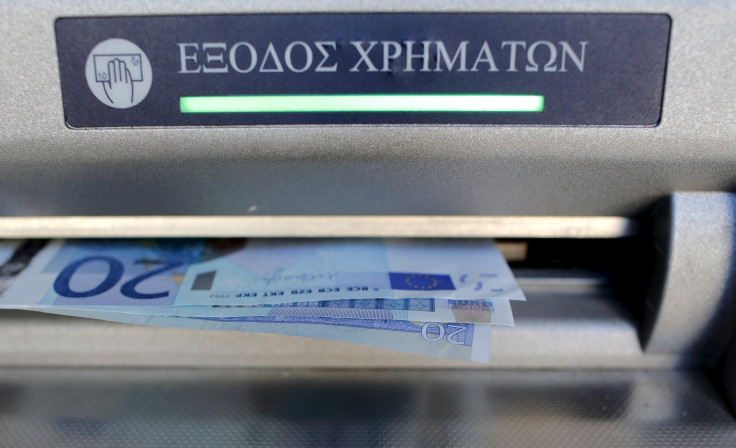How Much Cash Does Greece Need? Ahead Of Bailout, Billions Required To Bridge Gap, Prop Up Economy

The next pressing matter for Greece has cropped up just hours after eurozone and Greek leaders landed a hard-fought, 86 billion euro ($94.7 billion) bailout deal. Until the agreement goes into effect, the country’s sagging economy and its depleted banks would need emergency cash totaling some 12 billion euros through the end of August, a situation European leaders were expected to discuss Monday and one they acknowledged as challenging.
In order to keep up with debt payments, Greece needs 7 billion euros over the course of next week alone, finance ministers said, according to a Reuters report. The country owes the European Central Bank billions of euros in payments due by July 20, and faces another deadline in mid-August.
"The big issue for today is going to be bridge financing,” Alex Stubb, the finance minister for Finland, said Monday. “I foresee those negotiations as being very difficult because I don't see many countries having a mandate to give any money without conditions.”
SocGen: the Greek timeline updated after the Euro Summit pic.twitter.com/K03Gtmg4R1
— Fabrizio Goria (@FGoria) July 13, 2015Greek banks would continue to receive emergency funding from the European Central Bank, a source told Reuters, although banks were expected to remain closed at least until Wednesday. Capital controls would remain in place, the Guardian reported.
But precisely how that funding would materialize remained to be seen. There was “not much information about the bridge financing,” Margaritis Schinas, a spokesman for the European Commission, said Monday. “This will become clearer during the day.”
Leaders of the eurozone deliberated for 17 hours before agreeing early Monday to give Greece up to 86 billion euros over three years, provided that the Greek government imposed strict austerity measures, including immediately increasing taxes, reforming pensions and trimming its budget. Its parliament has until Wednesday to approve of the program so that it can take effect and the country can start to receive bailout funds.
The last two weeks -- since Greece failed to make a major debt repayment to the International Monetary Fund and subsequently held a referendum of popular opinion on whether or not to accept austerity measures in exchange for a bailout -- have cost the country anywhere from 25 billion to 50 billion euros, officials and diplomats estimated, Reuters reported.
© Copyright IBTimes 2025. All rights reserved.






















